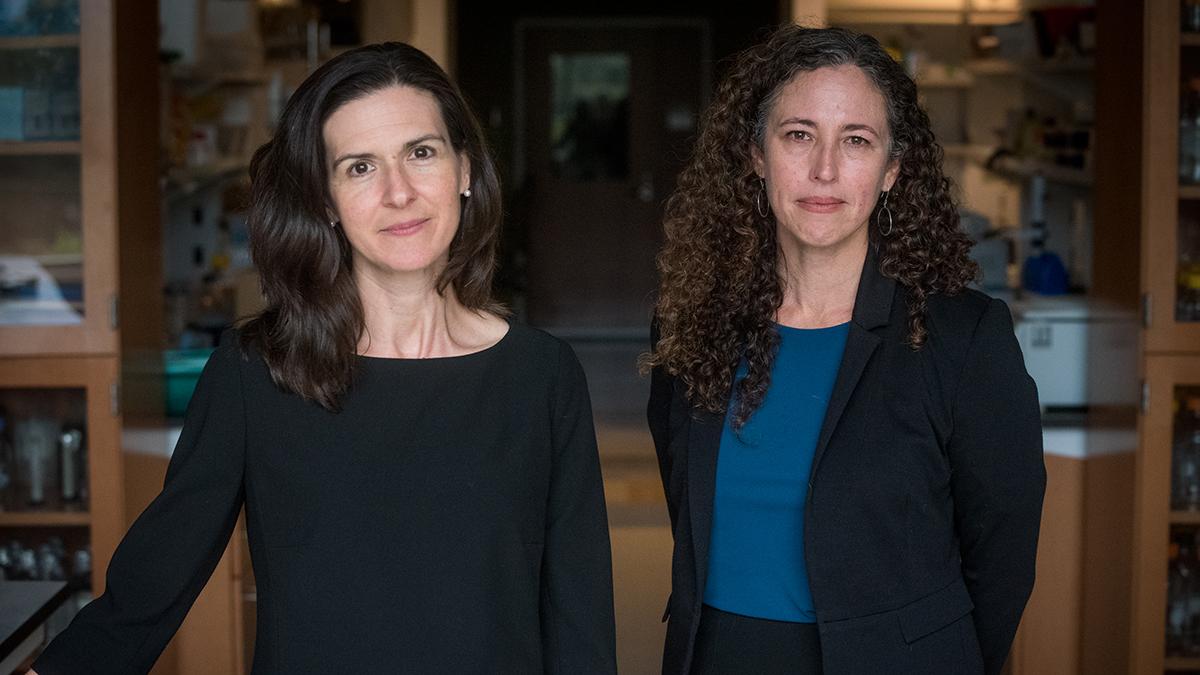
In 2018, Meira Epplein, PhD, associate professor in population health sciences and medicine, applied an intervention to stop cancer in a setting that most might not expect: a church.
Epplein is an expert in Helicobacter pylori (H. pylori), a stomach bacterium that causes pain, nausea, or ulcers in some people, and no symptoms in others. The bug is also linked to increased risk of stomach cancer. Stomach cancer is rare, but some groups, including African Americans, Asian Americans, Hispanic Americans, American Indians, and those with Ashkenazi Jewish heritage, are more likely to develop it.
In those infected with H. pylori, a two-week course of antibiotics can eradicate the bacterium and reduces risk of stomach cancer by 50%, said Epplein, whose great-grandmother died of the disease.
To reach people at higher risk who might not otherwise get tested and treated, Epplein partnered with Bishop Ronald Godbee of The River, one of the largest African American churches in Durham, North Carolina. Godbee introduced Epplein to the congregation, she spoke about the importance of getting tested, then they hosted a testing event at the church.
Using a breath test, the researchers tested 92 people, 23 of whom tested positive. They received letters about their results and were encouraged to share this information with their primary care doctors and ask to be treated if appropriate.
This pilot project is an example of a non-traditional cancer intervention that Epplein and others would like to see happen more often. She and gastroenterologist Katherine Garman, MD, MHS, associate professor of medicine, co-lead the Cancer Risk, Detection, and Interception (CRDI) Research Program at Duke Cancer Institute. The program brings together gastroenterologists, Ob/Gyns, surgeons, and other clinicians with cancer biologists, epidemiologists, biostatisticians, and others to develop new ways to identify people most at risk for cancer.
The goal is to stop the disease process in the early stages, ideally even before it is considered cancer.
"We want to think about stopping cancer before someone ever gets to an oncologist," Epplein said. "We want to help clinicians think about what's on that cancer pathway and what you can do, not just to treat the symptoms and what's going on right now with your patient, but to reduce the risk of developing cancer."
As a comprehensive cancer center designated by the National Cancer Institute (NCI), Duke Cancer Institute must obtain NCI approval for new research programs, and the CRDI program was officially approved in 2021 to focus on research that falls somewhere between cancer prevention and treatment.
"Quitting smoking is an example of primary prevention, right? But interception means intervening once someone has started down the cascade of events leading to cancer," Epplein said. She credits DCI Deputy Director Steve Patierno, PhD, with the inspiration for this new niche at Duke, as well as the work of Shelley Hwang, MD, vice-chair of research in the Duke Department of Surgery, who leads a large national study to determine the benefits of treatment versus watchful waiting for so-called stage 0 breast cancer (also called ductal carcinoma in situ). Hwang is a member of the CRDI program's steering committee.
Other steering committee members are Heather Stapleton, PhD, the Ronie-Richele Garcia-Johnson Distinguished Professor of Environmental Sciences and Policy in the Nicholas School of the Environment, who explores new biomarkers for interception and early disease risk in people exposed to cancer-causing chemicals, and Evan Meyers, MD, MPH, the Walter L. Thomas Distinguished Professor of Obstetrics and Gynecology, who specializes in mathematical modeling and decision analysis.
Program members work in their own labs but meet regularly as a "think tank" to present findings and share ideas for common themes to explore. In addition, members are encouraged to pursue community outreach to share what they learn with the public.
To read the full article, visit Mission: Interception — Creating Better Ways to Stop Cancer in Its Tracks.